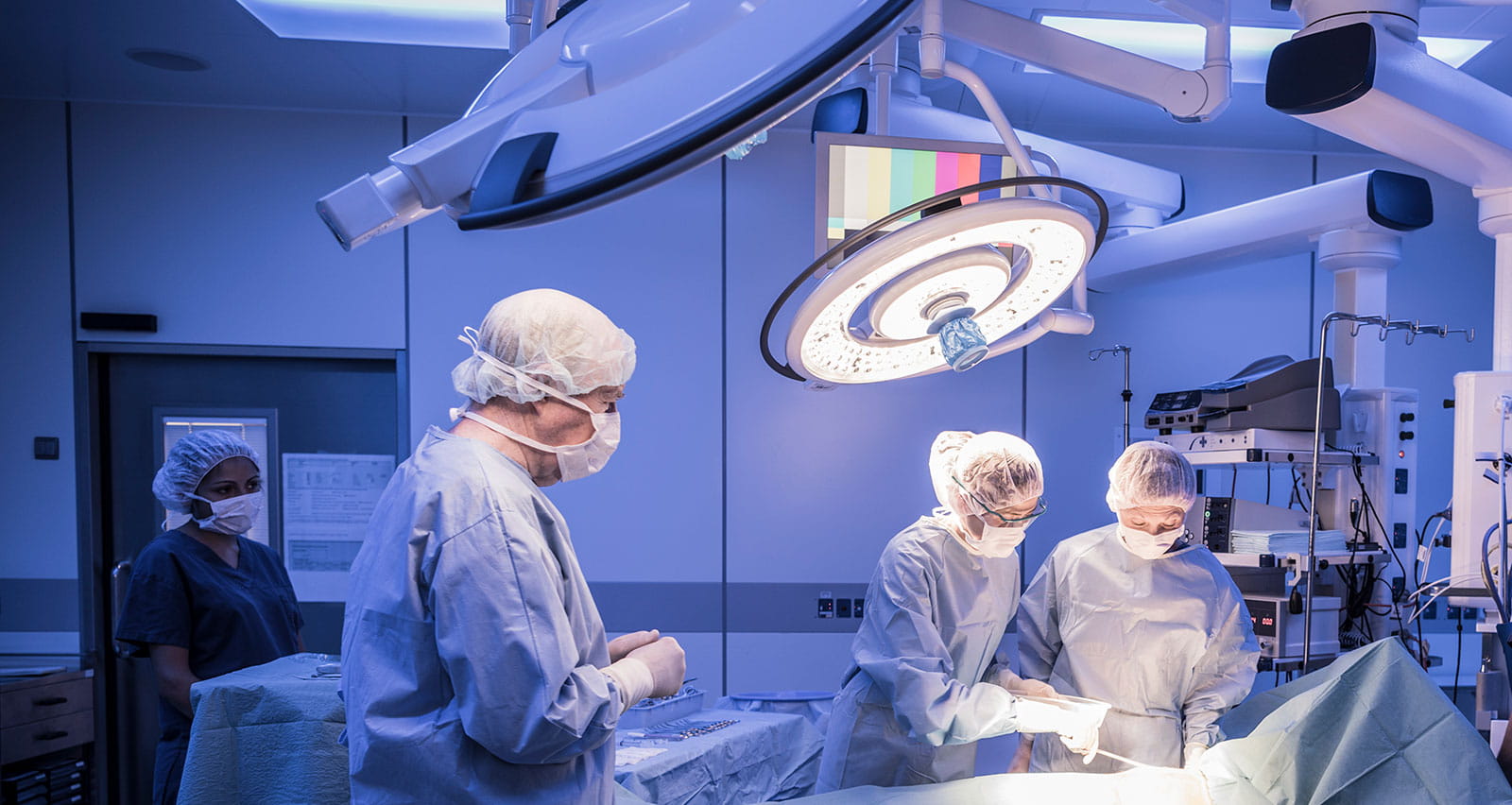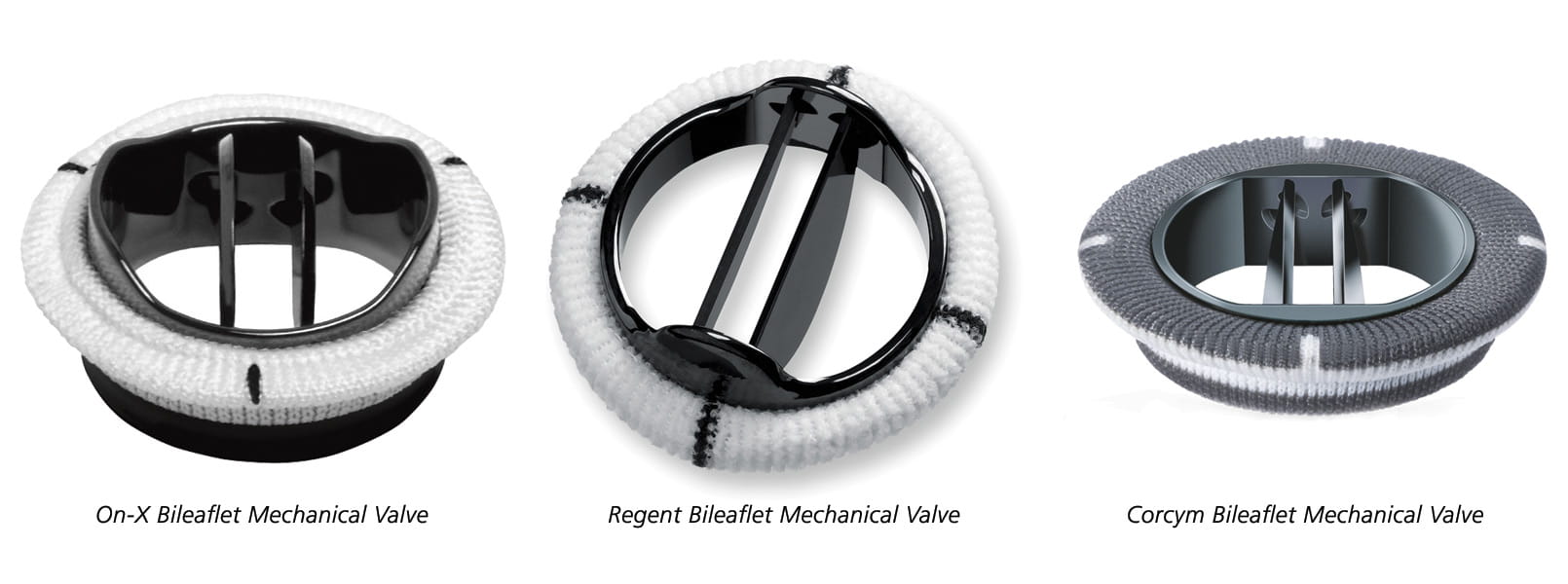
Surgical Aortic Valve Replacement (SAVR) With Tissue or Mechanical Valves
Surgical aortic valve replacement (SAVR) is surgery in which a diseased aortic valve is removed and replaced with a new tissue-based or mechanical valve.
The aortic valve is one of the four valves that help blood flow in the right direction through the heart’s four chambers. The aortic valve functions as the “door” that connects heart’s left chamber (left ventricle) to the aorta, the main artery that carries oxygenated blood away from the heart to the rest of the body. Due to aging and other factors, your aortic valve may become diseased, preventing it from opening or closing properly.
Your health is important. Get expert care.
Call 216-541-1756.
Find a Cardiac SurgeonWhen Is Surgical Aortic Valve Replacement (SAVR) Performed?
SAVR is used to treat the following conditions:
- Aortic stenosis: A condition in which the aortic valve flaps (also called cuffs or leaflets) become stiff and calcified so that the valve cannot open and close fully and normally.
- Aortic regurgitation: A condition in which the aortic valve does not close properly, causing blood pumped out of the heart’s main pumping chamber (left ventricle) to leak backward into the heart.
Types of Aortic Replacement Valves
The two main types of aortic replacement valves are:
Your doctor will discuss valve options and recommend the type that is best for you based on your age, health and other factors. In general, cardiac surgeons recommend tissue valves for people age 65 or older and mechanical valves for people under age 50, though either option may be suitable.
Tissue Valves
Tissue valves, also called biological or bioprosthetic valves, are generally made from tissue obtained from a pig or cow. Tissue valves are designed with prosthetic (artificial) components to help them function better. Tissue valves typically last from 15 to 20 years. Unlike mechanical valves, tissue valves do not require a person to take blood thinners.
Tissue valves are either stented or stentless.
Stented Tissue Valves
Most stented valves have three flaps made from either porcine (pig-based) aortic valves or bovine (cow-based) pericardium (the membrane that surrounds the heart). These valves are mounted on flexible plastic or titanium metal frames (stents) covered with a synthetic fabric (sewing cuff). The stents help with the implantation of the valve while also providing permanent support for the valve’s three-dimensional structure.
Stentless Tissue Valves
Stentless tissue valves are made from whole porcine aortic valves or bovine pericardium. These valves are placed directly at the aortic root (the section of the aorta closest to and attached to the heart) without a stent, large sewing ring or other supporting component. The benefits of performing SAVR with stentless tissue valves over stented valves include:
- Lower risk of patient-prosthesis mismatch, in which the area of the replacement valve is too small for a patient’s anatomy.
- Better outcomes for people with small aortic roots.
- Allows for implantation of larger replacement valves.
- Improved blood flow and valve durability.
Mechanical Valves
Mechanical valves are made of carbon, titanium or steel. While mechanical valves are longer lasting, blood clots are more likely to form on mechanical valves than tissue valves. Because of this, patients must take a blood-thinning medication (anticoagulant) called warfarin (branded as Coumadin® and Jantoven®) for the rest of their lives.
As one of the nation’s leading academic medical centers, University is at the forefront of pioneering clinical trials and research designed to develop innovative treatments, procedures and medicines. Recent research efforts in the area of mechanical heart valves include participation in study that tested the safety of reduced anticoagulant therapy after mechanical aortic valve replacement.

- What Happens Before SAVR?
-
Prior to SAVR, you will have a physical exam and testing. Your healthcare team comprehensively evaluates your heart and your health to determine the best course of treatment.
Potential tests may include:
- Cardiac catheterization
- Chest X-ray
- Computed tomography (CT) scan
- Echocardiogram (echo)
- Electrocardiogram (EKG)
- Blood tests and urine tests
If you’re approved for SAVR, your care team will share instructions to prepare for surgery, including:
- When you should start fasting prior to your surgery.
- If you should temporarily stop taking any medications.
- When to arrive at the hospital.
- Personal items to bring with you and what to leave at home.
- What Happens During SAVR?
-
SAVR typically follows these steps:
- You will be given anesthesia to put you in a deep sleep-like state. During surgery, you will not feel any pain or be aware of what’s happening. You will not remember the surgery.
- To access the heart, the surgeon makes a vertical incision, called a sternotomy, through the breastbone. The incision is usually about 4 to 6 inches long.
- You will be connected to a heart-lung (cardiopulmonary) bypass machine, which allows the surgical team to temporarily and safely stop your heart. The heart-lung machine takes over the function of your heart and lungs during the operation.
- The surgeon removes the diseased aortic valve and sews the new valve into place.
- The surgical team uses wire to reconnect the two sides of the breastbone. These wires generally remain in place for life.
- Your surgical team closes your incision.
- How Long Does Aortic Valve Replacement Surgery Take?
-
SAVR surgery generally takes two to four hours.
- What Happens After SAVR?
-
Most patients spend about five days in the hospital following the surgery, including one or more days in the intensive care unit (ICU). During your hospital stay, your care providers will:
- Periodically check your blood pressure, breathing and heart rate.
- Check for signs of infection at the incision sites.
- Work with you to manage any post-surgical pain you may have.
- Encourage you to walk and move around each day.
- Assist you with breathing exercises.
Six to eight weeks after surgery, you’ll begin cardiac rehabilitation to help you gradually return to increased levels of physical activity. Cardiac rehab typically lasts 12 weeks. You will also receive education, counseling and support to help you make lasting lifestyle changes. For example, you may learn how to follow a heart-healthy diet or quit using tobacco.
- What Are the Risks or Complications of SAVR?
-
Potential risks and complications of SAVR include:
- Arrhythmia (especially atrial fibrillation)
- Bleeding
- Infection
- Stroke
- Need for a permanent pacemaker
- Death
Age, medical conditions and other factors affect the risk of complications. Your surgeon will discuss your risk factors and what can be done to optimize the success of your surgery.
Why Choose University Hospitals for SAVR?
Unparalleled clinical expertise
Highest quality patient outcomes
Office visits and imaging coordinated on the same day
Quick, convenient access with sites across the region
Virtual appointment option for follow up care

Who Performs SAVR at University Hospitals?
University Hospitals Harrington Heart & Vascular Institute’s heart surgery program, based at University Hospitals Cleveland Medical Center, in Cleveland, Ohio, is consistently ranked in the top 1 percent of hospitals nationwide.
Find a Cardiac Surgeon Who Performs SAVR Using Tissue or Mechanical ValvesMake an Appointment
For more information, or to schedule an appointment with one of our heart surgeons, call 216-844-4004.
Find a Cardiac Surgeon

